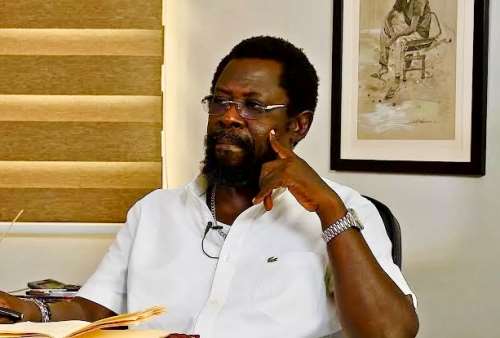Human rights attorney and activist Dele Farotimi has criticized the portrayal of former military president Gen. Ibrahim Badamasi Babangida (rtd.), also known as IBB, as a statesman, arguing that such praises merely serve to justify the “evils” he said were committed against Nigerians under Babangida’s rule.
In a brief remark posted on his verified 𝕏 account on Tuesday, Farotimi charged that Nigerians were using what he called mutual affirmation tactics to cleanse leaders with a dubious past.
It helps normalize the evils these vile cretins have inflicted on the populace by failing to expose them for what they are. The evil has been sustained in part by this mutual affirmation tactic. You may quit deceiving yourselves, IBB is not a statesman,” he wrote.
The Debatable Birthday Tribute to Adesina
Farotimi’s remarks were said to have been made soon after Dr. Akinwumi Adesina, the former president of the African Development Bank, praised Babangida as one of Nigeria’s “foremost elder-statesmen” in a birthday card.
In honor of the former military leader’s 84th birthday, Adesina wished him well and commended his “patriotic fervour, devotion, and commitment to Nigeria’s peace, unity, and progress.”
“I congratulate H.E. General Ibrahim Babangida, GCFR, the former Head of State of Nigeria, on his 84th birthday,” Adesina wrote. As one of the most important elder statesmen in Nigeria, you never cease to motivate the country with your passion for your country, your unwavering devotion, and your unwavering dedication to Nigeria’s peace, unity, and advancement. Your life is distinguished by resilience and complete service. May God always bless you with excellent health, strength, vigor, and happiness, surrounded by the love of your loved ones, both now and in the future. Greetings on your birthday, sir. From Yemisi and me, Akin, with much love.
However, the public praise generated responses on the internet, with Farotimi being among the most vocal opponents of what he perceives to be an effort to erase history.
Read Also: Chad Security Forces Detain Boko Haram Founder’s Son Alongside ISWAP Fighters
The Contentious Legacy of Babangida
IBB, who governed Nigeria from 1985 to 1993, is still regarded as one of the most divisive figures in the nation, according to Naija News.
His rule is known for annulling the June 12, 1993, presidential election, which was generally believed to have been won by Chief Moshood Kashimawo Abiola (MKO Abiola).
Critics contend that his actions strengthened corruption, exacerbated poverty, and exacerbated Nigeria’s sociopolitical difficulties, despite his supporters’ frequent portrayal of him as a practical leader who implemented economic changes like the Structural Adjustment Programme (SAP).
The argument over whether Nigerians should remember Babangida as a leader whose actions left the country with permanent scars or as an elder statesman worthy of national honor has been rekindled by Farotimi’s scathing remark.



